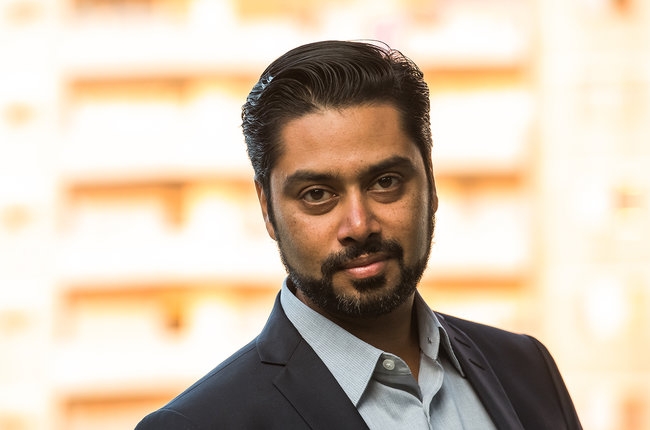One name was unaccounted for in the aftermath of UTA Canada’s sudden closure last month, which was quickly followed by announcements that the country would get two new agencies. Ralph James and Jack Ross revealed they will be running APA's new Canadian office, and Rob Zifarelli the same for Paradigm's, with both new agencies taking many of the UTA staffers with them. But Zaed Maqbool, who started at UTA Canada’s former incarnation The Agency Group in 2006 and boasted a roster of Marianas Trench, July Talk, Shawn Hook and A Tribe Called Red, was not among them.
Maqbool tells Billboard in an exclusive interview that he will be moving to Dubai by Jan. 1 with his wife and two daughters to work at Live Nation as vp touring for South Asia and the Middle East.
“I’m extremely excited for the new adventure and thrilled to be working with a forward-thinking company that understands the importance of emerging markets,” says Maqbool, who is fluent in Urdu, Hindi, Punjabi and English, and can read and write Arabic and Farsi. Born in Lahore, Pakistan, Maqbool came to Canada in 1999 to attend the University of Waterloo in Ontario. “Much to the chagrin of my parents, I started to pursue a career in music instead of studying to be a doctor, engineer, lawyer,” he laughs.
His decision to accept this position in the United Arab Emirates, he believes, will open doors for Canadian acts and his business colleagues. “They’ll have a friendly Canadian face in that region that is hopefully going to facilitate them coming out in terms of shows.”
Maqbool speaks to Billboard about how the new job offer came his way and what he intends to do in his new role moving forward.
Billboard: After you learned of UTA Canada’s closure, did you start seeking opportunities?
Zaed Maqbool: I’ve been keeping abreast of the international and emerging markets for a very long time. Even while I was at The Agency Group and later at UTA, I had kept a strict eye on what was going on in the international and emerging market for the simple reason that I grew up there and was very excited and intrigued by those markets. I knew most of the people in the emerging markets at Live Nation and other companies, so I kept in touch with them just as friends. In my capacity as an agent, I would be in touch with them and try to sell them acts, and then once the whole thing went down [the UTA Toronto office closing], in the back of my head, of course, I was trying to find a great home for my artists.
Who were your top clients?
I was working very closely with July Talk, A Tribe Called Red, Marianas Trench, and Shawn Hook, booking them since they were playing small clubs. I was the responsible agent for July Talk, which meant that I held the calendar for the band. We had territorial agents in the United States and in Europe, but I took care of the international markets. Marianas Trench was the same situation. We were doing stuff with our counterparts in the United States and in Europe, but then within the UTA/Agency Group umbrella, I was doing the international bookings for them in Australia, Philippines, Singapore and some of the other emerging markets.
But not in Dubai?
No. The interesting part about Dubai is it is an entertainment hub, and almost 90 percent of the population is [made up of] ex-pats. So you do see a lot of bigger acts going to Dubai; Coldplay, Guns N’ Roses, Metallica and a whole chunk of these stadium/arena acts. But the mid-level acts that are trying to make a mark, you weren’t seeing as many of those in those markets. With July Talk and Marianas Trench and some of the other bands that I was booking, it didn’t quite jive with their career at that point in time to be going into a market like Dubai, but I have had conversations with those guys. Give it another year or two and they probably would have ended up there, and this is probably going to expedite the process of getting them out to that region.
How did you get offered this position?
I knew the president of international and emerging markets, Alan Ridgeway; we’d been talking about India and South Asia, and the Middle East as a whole. He was intrigued by the fact that I spoke all the languages out there and I was familiar with the nuances and the culture. So once all of it happened, I was trying to find a home for my bands, but in the back of my mind I hadn’t written off the concept or the possible trajectory of me crossing over to the other side and doing the buying instead of the selling in a market which I was familiar with. So once all of this happened, I had a couple of offers on the table, and I was legitimately ready to sign with an agency. Then the offer came [from Live Nation] and it was hard to say no. Jack and Ralph have been my mentors since the very beginning and they put an offer on the table as well, but I have their blessing.
What will you be tasked with?
To become the conduit between the industry here and the industry there. I hope to utilize my networks that I’ve built over the last decade to be able to understand what the agents want -- which is important to me because I was one -- and to be able to bridge that gap between promoter and agent, while utilizing my knowledge of the industry and culture and the norms that are involved with booking in that part of the world. So they are really hoping that I’m able to tackle India, and bring some of the artists that tour from that region into Dubai, and, in a perfect world, expand into those markets in a huge way and build it up to be a relevant touring market for all acts, regardless of size.
What's the difference between, for instance, Dubai vs. India vs. Egypt in terms of major labels and radio and the kind of promotional infrastructure needed to help support shows?
I’ll break that down into two. First of all, I’ll talk about the U.A.E. as a market. I’m going to be going there to get a better understanding, but based on my knowledge while being out here in the last 10 years, I can say that courtesy of the fact that there are no taxes in Dubai, there is certainly lots of disposable income. People throw money at entertainment, so the envelope can be pushed as far as ticket prices are concerned when it comes to bigger acts. Also, coupled with the fact that 90 percent of the country is ex-pats, you’re able to bring in acts from all over the world that are relevant to those ex-pats, and they will buy tickets to those acts.
It doesn’t necessarily have to be only Western acts; some of the biggest acts that go to Dubai are from South Asia, from Iran, from other parts of the Arabic world. So as far as ticket prices are concerned, it’s a healthy market. Again, they usually only know the bigger names.
Infrastructurally, everything is absolutely world class. Ticketmaster has an office in Dubai, so they’ve become the forefront of ticketing and VIP and all of that. You actually have the infrastructure already in place to be able to exploit the ticket-selling marketplace.
On the Indian side, it’s more interesting. Infrastructurally, it’s lagging a little bit more. Acts that go there are used to a certain level of service. But that is not to say that it is not quickly catching up. There are people and individuals in that part of the world and entities and companies that are rapidly expanding their footprint in the region and there’s a lot happening. I hope to be able to add to the level of bands that are coming out to that part of the world. India is a tougher market to tackle, but a challenge that I’m happily able to take on.








